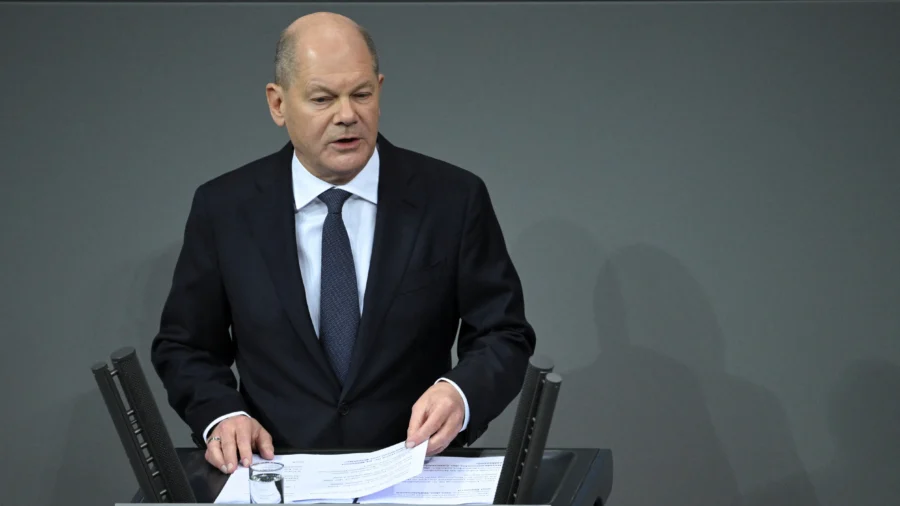German Chancellor Olaf Scholz lost a confidence vote in the German parliament on Dec. 16, paving the way for an early election in February.
Scholz, who called the vote, secured the support of 207 lawmakers in the 733-seat lower house, or Bundestag, while 394 voted against him and 116 abstained, leaving him far short of the 367 votes needed for a majority.
In November, Germany’s ruling coalition collapsed. Under German rules, a president can only dissolve parliament and call elections if the chancellor calls and loses a confidence vote.
Scholz agreed with the opposition to hold an election on Feb. 23, 2025.
Europe’s largest economy is facing its second year of contraction, grappling with the end of affordable Russian gas and historic Volkswagen factory closures as it struggles to compete with lower-cost Chinese electric vehicles.
He urged lawmakers to work together in the remaining window before the elections to pass measures still on the agenda.
“This is about a few but very important decisions that can’t be delayed at all,” Scholz said in Berlin after submitting the request to the Bundestag for the confidence vote. “Everyone is warning that electricity costs must not continue to rise.”
Scholz cited recent meetings with representatives at Volkswagen and Ford, both of which are planning major cuts.
According to a survey conducted on Dec. 13 and published by INSA, the alliance of the Christian Democrats (CDU) and their Bavarian sister party the Christian Social Union (CSU) is on track to win the federal election, with a survey putting them at 31 percent, followed by the Alternative for Germany on 20 percent, Scholz’s Social Democrats on 17 percent and the Greens on 11 percent.
Richard Schenk, a research fellow at the think tank MCC Brussels, previously told The Epoch Times that snap elections are complicated in Germany.
Schenk said the CDU, FDP, and AfD could form a minority in the Bundestag.
However, he said that conservatives are afraid of this minority government situation, as the AfD is going to bring forward proposals for economic policy that are “out of the CDU and FDP playbook.”
“Then [the CDU] would either have to maintain this firewall, this cordon sanitaire, and basically refuse their own proposals, or they would have to accept the AfD proposals,” Schenk added.
France
France, with the second-largest economy in the European Union, is also grappling with significant political changes.
French lawmakers from all sides of the political spectrum voted on Dec. 5 to remove conservative Michel Barnier from the prime minister post.
President Emmanuel Macron appointed François Bayrou—a French centrist and longstanding ally—as prime minister on Dec. 13.
Macron has vowed to remain in the Elysee Palace for the duration of his term, which runs until mid-2027. Before then, he cannot be removed by the French Parliament, although opposition on both his left and right flanks are already calling for his resignation.
The country’s debt is projected to soar to above 3 trillion euros ($3.17 trillion) by 2025, with public debt hovering at around 110 percent of GDP.
The Associated Press and Reuters contributed to this report.
From The Epoch Times

